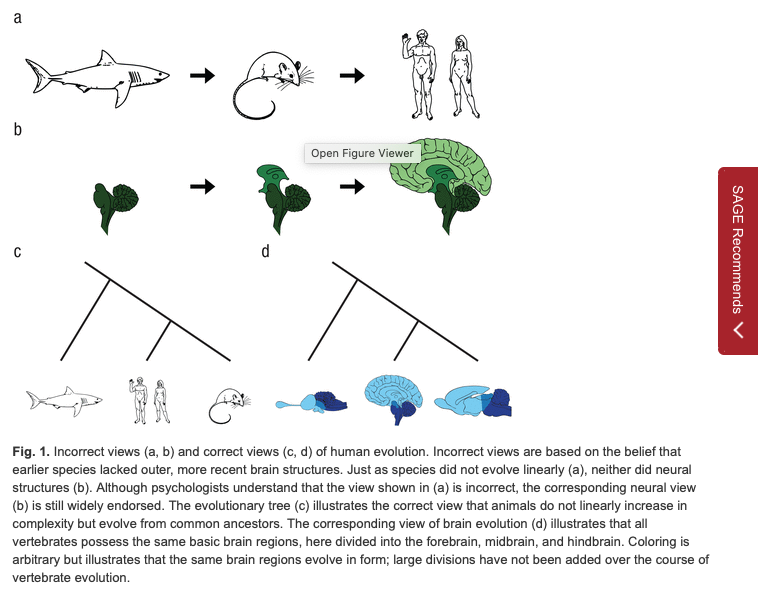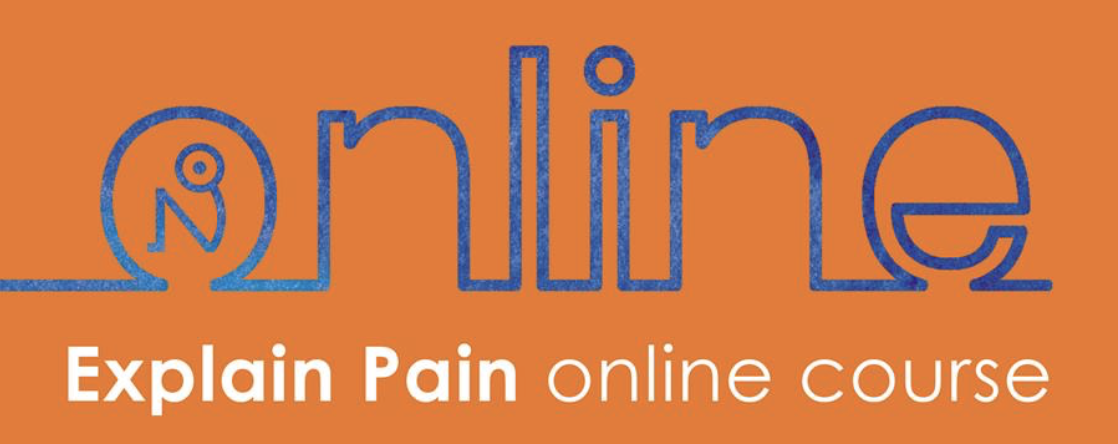Great paper here. Short read, straightforward argument constructed clearly and cogently, and one of the best titles for a paper you could ask for (so good that I couldn’t think of anything better for the title of this post.). Open access to read online via the multiple links.
Your brain is not an onion

“A widespread misconception in much of psychology is that (a) as vertebrate animals evolved, “newer” brain structures were added over existing “older” brain structures, and (b) these newer, more complex structures endowed animals with newer and more complex psychological functions, behavioral flexibility, and language. This belief, although widely shared in introductory psychology textbooks, has long been discredited among neurobiologists and stands in contrast to the clear and unanimous agreement on these issues among those studying nervous-system evolution. We bring psychologists up to date on this issue by describing the more accurate model of neural evolution, and we provide examples of how this inaccurate view may have impeded progress in psychology. We urge psychologists to abandon this mistaken view of human brains.”
No tiny reptiles inside
Having framed the problem and the common mistakes made, the authors ask the question So What? and proceed to provide a number of arguments highlighting the danger of faulty thinking at the base of research:
“This division of psychological functions into evolutionarily older animalistic drives versus evolutionarily newer rational thought is exemplified by research on willpower, which has historically been dominated by a framing that contrasts “hot,” immediate, and emotional choices with “cool,” long-term, and rational choices. Should I eat the ice cream, which tastes good now, or the salad, which I know is better for me in the future? In the classic marshmallow studies, delaying gratification by waiting to eat the marshmallows is seen as a good result—indicating more willpower (Shoda, Mischel, & Peake, 1990). This framing is expected given that the starting point of this research was the Freudian psychodynamic position, which contrasted hot animalistic drives with cool rational processes.
Framing willpower as long-term planning versus animalistic desires leads to the questionable conclusion that delaying gratification is not something other animals are capable of if other animals lack the evolutionarily newer neural structures required for rational long-term planning. Although certain aspects of willpower may be unique to humans, this framing misses the connection between willpower in humans and decision-making in nonhuman animals. All animals make decisions between actions that involve trade-offs in opportunity costs. In this way, the question of willpower is not “Why do people act sometimes like hedonic animals and sometimes like rational humans?” but instead, “What are the general principles by which animals make decisions about opportunity costs?”
Perhaps the only criticism I might make is that the paper is unfairly targeted at psychology and psychologists. They are surely not the only group of researchers and health professionals containing individuals with faulty, outdated, simplistic or simply wrong ideas about the brain.
-Tim Cocks

New live, interactive format!
Explain Pain is now being delivered online . Expect a small class size, breakout sessions, plenty of time for questions in the comfort of your own home or quiet workplace. The course includes the same quality content you’d expect and also a comprehensive hardcopy workbook delivered to your door.
West Coast North America, starting 8 June 2020 (4 online sessions)
East Coast North America, starting 12 June 2020 (3 online sessions)
Netherlands, starting 26 June 2020 (3 online sessions)
United Kingdom, starting 3 July (4 online sessions)
All Australian online courses are currently sold out. Future Australian course details will be announced on noigroup.com and NOI social media.

comments